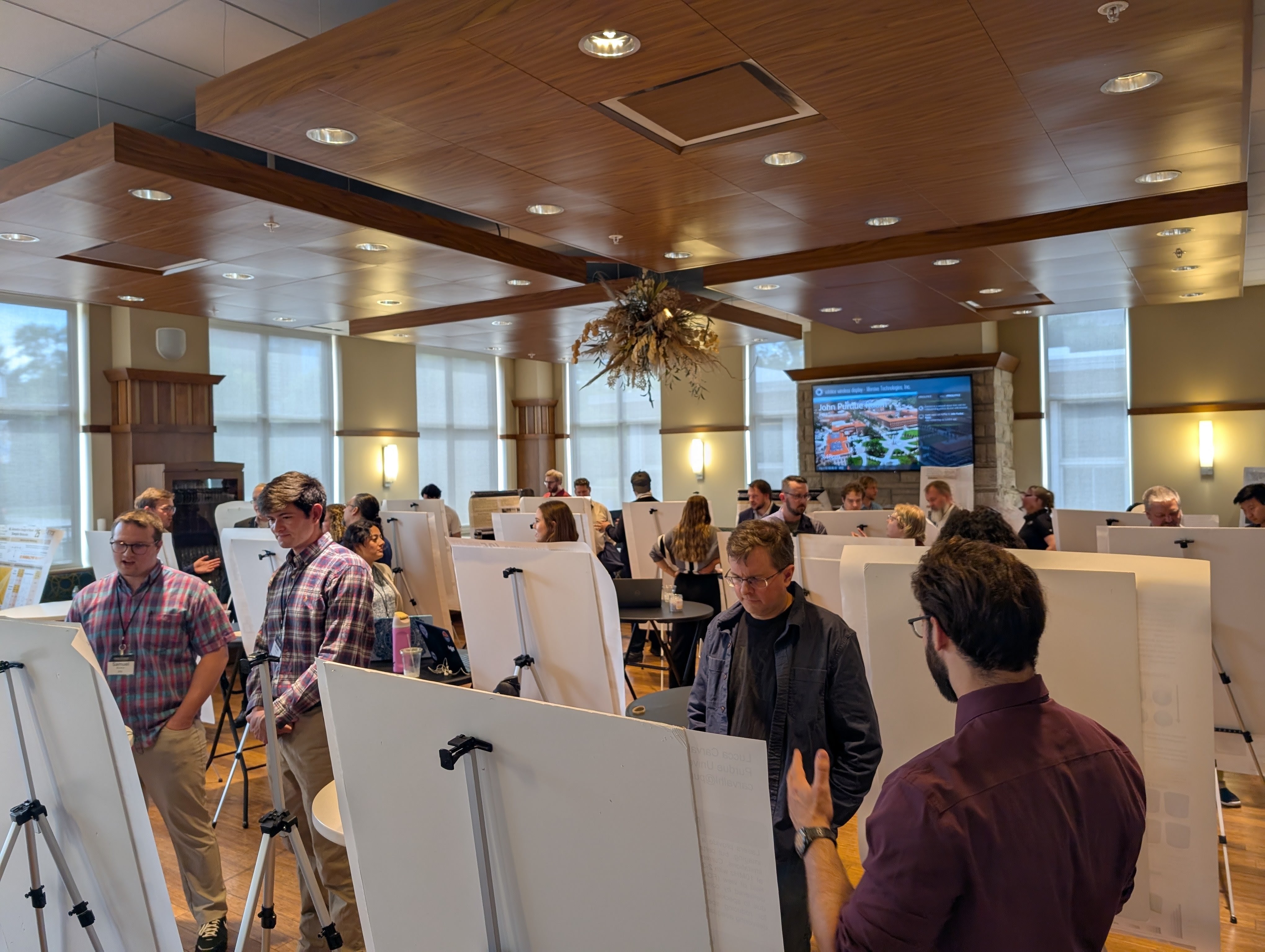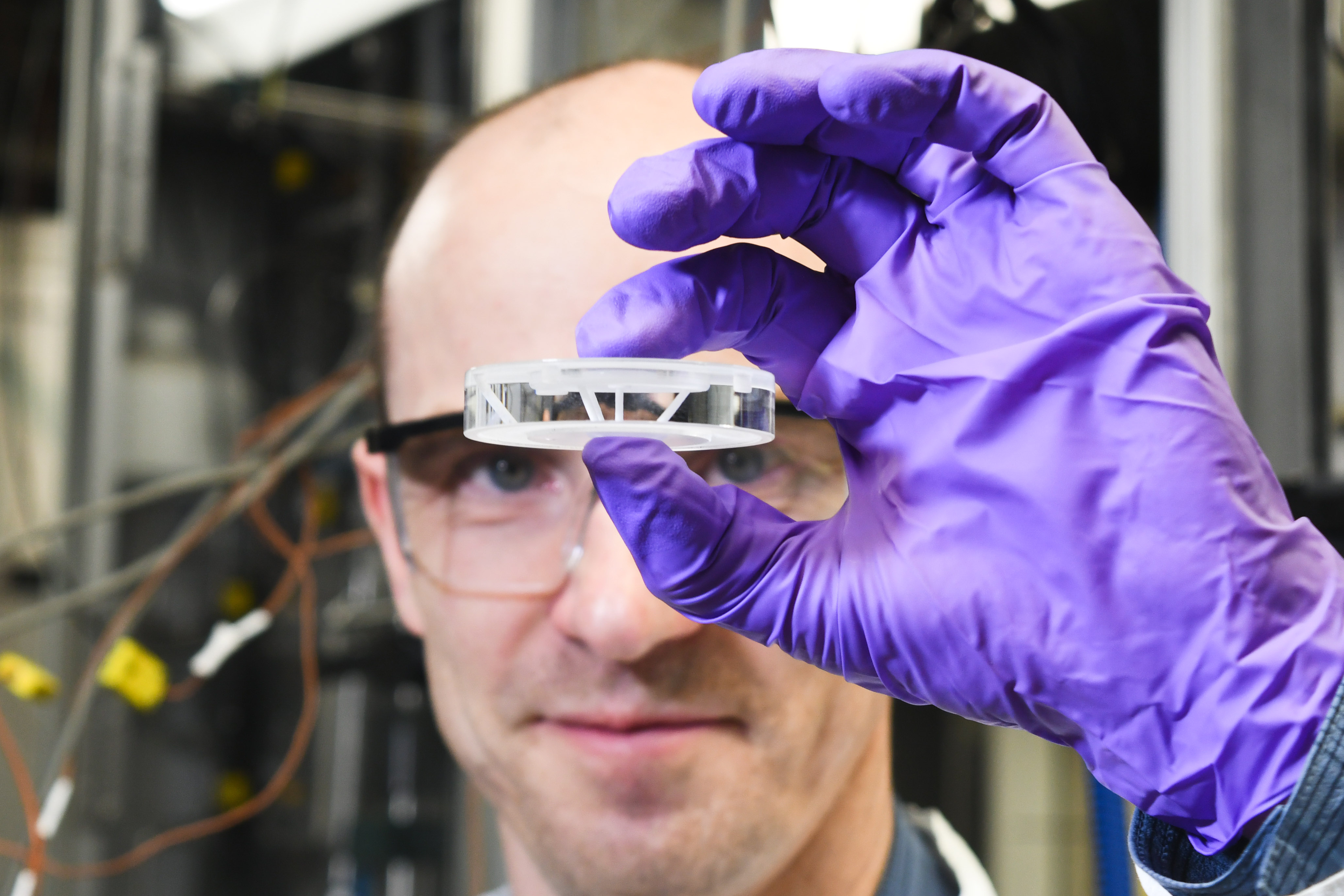Purdue Energetics Research Center
The Purdue Energetics Research Center (PERC) focuses on comprehensive energetic materials research "from molecules to munitions." Through cutting-edge fundamental and applied research, PERC addresses existing and emerging explosives-based needs for civilian and military infrastructure, commerce and aviation. It also supports the U.S. need for more stable, less sensitive and more easily processed energetic materials including propellants, pyrotechnics and in ordnance. PERC has enjoyed support from nearly every agency within the U.S. defense sector.
To drive the field of energetic materials forward through our ideas, our students, and our partnerships.
What's Trending

Purdue hosts dual energetic materials events to advance research and talent development
October 3, 2025
Energetic materials — propellants, pyrotechnics and explosives — are critical technologies for the U.S. defense ecosystem. Maintaining a modernized infrastructure with advanced technological capabilities requires a robust, skilled workforce across public and private sectors.
Read Full Article
Seeing is believing: Students create transparent rocket engines
September 9, 2025
Anyone who’s seen a rocket launch knows there’s an enormous amount of light at the end of the nozzle. What happens upstream of that nozzle, however, is not often seen by human eyes. But in Purdue’s Propulsion Design, Build, and Test (DBT) course this spring, students got to do more than “just” fire their own rocket engine. They got to see right through it. Tim Pourpoint and his propulsion students developed a completely transparent rocket engine, enabling them to see the entire combustion process for the first time.
Read Full Article
Purdue Energetics Research Center aims to modernize manufacturing of energetic materials
September 9, 2025
The Purdue Energetics Research Center has received approximately $7 million from the United States Department of Defense to modernize manufacturing processes for energetic materials — explosives, pyrotechnics and propellants. These new methods aim to support government and industry in scaling up production, reducing costs, and ensuring safety and quality of materials.
Read Full Article
Jiselle Thornby, PhD in chemical engineering, defends PhD, lands position at top defense company
February 28, 2025
Jiselle Thornby, PhD in chemical engineering, successfully defended her dissertation, "From Dust to Deposition: Development and Characterization of 3D-Printed Surrogate Energetic Materials," in November 2024. Below, she goes into more detail about her research and her plans for the future.
Read Full Article
Mechanical engineering researcher Monique McClain develops state-of-the-art processes to tailor-make energetic materials
February 25, 2025
Additive manufacturing, commonly known as 3D printing, has become a staple area of study across engineering disciplines because of its potential to revolutionize the design and production of a variety of materials and structures. Monique McClain, assistant professor in Purdue’s School of Mechanical Engineering, has dedicated her career to more efficiently developing high-quality and high-performing 3D-printed energetic materials, such as explosives, pyrotechnics and propellants, that can be fine-tuned for performance and safety.
Read Full Article
The Purdue Energetic Materials Summit (PEMS)
February 10, 2025
Since 2017, the biennial Purdue Energetic Materials Summit (PEMS) technical exchange has provided a stimulating venue for open discussion of state-of-the-art and emerging challenges associated with energetic materials. Thought leaders from across industry, government, and academia have gathered to share their expertise and develop a vision for the future. We look forward to continuing this tradition and ensuring that the vision is realized. The next PEMS will be held from September 23-26, 2025.
Read Full ArticleFacilities

Birck Nanotechnology Center
The Birck Nanotechnology Center is an interdisciplinary research center that provides infrastructure for more than 150 faculty members and their research groups. The research center includes the Dynamic Analysis of Micro-and Nanosystems Laboratory, a world-class facility focused on sensor development and small-scale materials characterization.
Learn More About Birck Center
FLEX Lab
The FLEX Lab is designed to adapt to the creative and innovative needs of engineering professors and their students. Its wet lab, dry lab and open spaces enable teams to collaborate on interdisciplinary research and discovery. FLEX Lab primarily supports PERC's synthesis, formulation and chemical analysis research.
Learn More About FLEX Lab
Maurice J. Zucrow Laboratories
The Maurice J. Zucrow Laboratories provides infrastructure for approximately 15 faculty members and their research groups. Zucrow's seven buildings and 22 labs have a rich, 65-year history of graduate education and fundamental and applied engineering research in energetics, rocket propulsion, combustion and turbomachinery. Zucrow primarily supports PERC's formulation, additive manufacturing, combustion and diagnostics research.
Learn More About Zucrow Labs